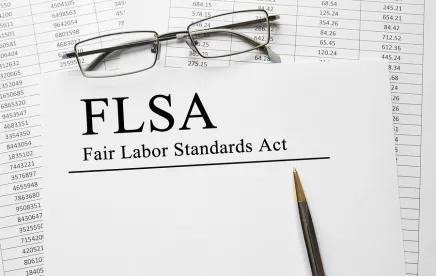In November 2017, four convenience store franchisees brought suit in federal court against 7-Eleven, Inc., alleging that they and all other franchisees were employees of 7-Eleven. The case was filed in the United States District Court for the Central District of California, entitled Haitayan, et al. v. 7-Eleven, Inc., case no. CV 17-7454-JFW (JPRx).
In alleging that they were 7-Eleven’s employees, the franchisees brought claims for violation of the federal Fair Labor Standards Act (“FLSA”) and the California Labor Code, alleging overtime and expense reimbursement violations. The trial court granted judgment in 7-Eleven’s favor, concluding that 7-Eleven was not the four franchisees’ employer under California law or federal law.
The court noted that the franchisees’ “basic legal theory underlying [their] claims [wa]s that 7-Eleven’s restrictive policies and practices created an employment relationship between the parties.” The court concluded that because the franchisees could not establish an employment relationship, each of their claims failed.
For example, while 7-Eleven required the franchisees to keep their stores open 24 hours per day, 364 days per year, the court was persuaded by the fact that the franchisees themselves were not “actually required to work at the stores a particular number of hours or on particular days” – they could hire employees to meet these requirements. And while the franchisees argued that 7-Eleven controls the payment of all wages and instructs franchisee on pay practices, performance appraisals, and disciplinary actions, including worker terminations, that did not persuade the court because “the fact that a franchisor pays a franchisees’ employees’ wages does not create an employment relationship,” and the franchisees admitted that they have unfettered discretion to hire and fire employees and set wages.
Because the franchise agreements explicitly provided that franchisees “control the manner and means of the operation” of their stores and “exercise complete control over and all responsibility for all labor relations and the conduct of [franchisees’] agents and employees, including the day-to-day operations” of franchisees’ stores and employees, the court concluded that such minimal control was insufficient to make franchisees common law employees of 7-Eleven.
The federal court’s decision is a welcome one for franchisors that have sound franchise agreements and practices in place. It is certainly possible that the court would have reached a different conclusion had 7-Eleven’s franchise agreement or practices provided for 7-Eleven to have a greater right to exercise control over franchisees. In light of this decision, franchisors should review their agreements and practices to ensure they do not have a right to control the wages, hours, or working conditions of franchisees.



 />i
/>i
